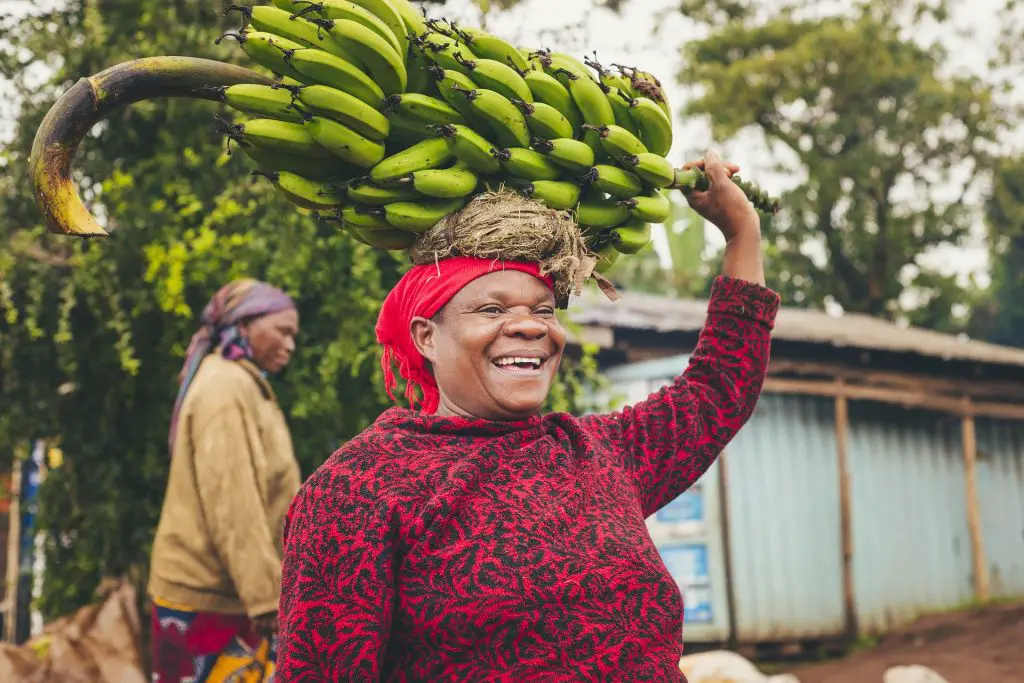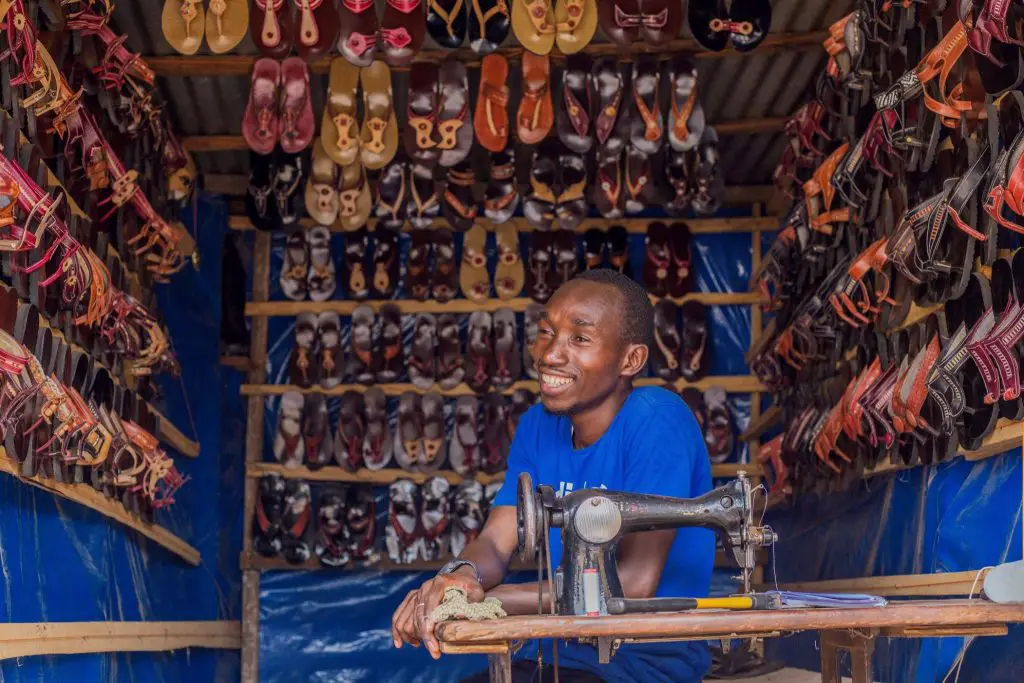- History beckons as push for Kenya’s Ruto to address US Congress gathers pace
- IMF’s Sub-Saharan Africa economic forecast shows 1.2 percent GDP growth
- The US Congress proposes extending Agoa to 2041, covering all African countries
- Millions at risk of famine as fuel tax row halts UN aid operations in South Sudan
- Empowering the Future: Humanity Protocol’s Dream Play Initiative
- TikTok Community Guidelines update aims to curb hate speech and misinformation
- Rwanda sees 39% surge in bank borrowers as Sacco and MFI loan uptake declines
- Kenya Ports Authority wins dispute case over cargo release
Browsing: premium
Rwanda is moving to cement its position as the financial capital of Africa by drawing in different investments and partnerships. Such partnerships include developing Kigali as a financial hub through the Kigali International Finance Centre, a hub supported by government-owned Rwanda Finance.
CDC Group, the UK’s development finance institution and impact investor, in June signed a partnership agreement with Rwanda Finance to support the development of a new international financial capital for Africa.
The Kigali International Financial Center (KIFC) is intended to be a world-class financial hub, designed to promote inward investment and the creation of thousands of highly skilled financial sector jobs for the benefit of Rwanda and the African continent.
This partnership will see CDC provide the expertise that will help shape a strong legal and regulatory framework that is designed to attract institutional investors seeking to finance African businesses through a world-class financial center.
Rwanda Finance was …
Rwanda is the first country in Africa to fully comply with ICAO’s biosecurity recommendations.…
Five years ago in 2015, Tanzania voted in a new president, Dr. John Magufuli. One of his very first moves was to stop the country’s annual Independence Day celebrations and instead the millions that would otherwise go into the traditional parade were directed to infrastructure—the congested New Bagamoyo Road expansion.
That year, to celebrate Independence Day, Tanzania held a national cleanup campaign. The President and his deputy, Vice President Honourable Samia Suluhu led the country in cleaning the environment.
I do not mean they signed some environment pollution documents; the president in person walked out of the State House and collected trash, not in his backyard, no, but all the way down to the filth–piled fish market, several meters from the State House.
If anything, the cleanup was symbolic of what was to come under his presidency. Little …
The quarterly economic bulletin published by Bank of Tanzania (BoT) has provided promising prospects for Tanzania’s fast-growing economy.
The Q2 report for the period ending June 2020 recorded satisfactory performance in a few sectors despite the coronavirus grip.
In the reporting period, real gross domestic product grew by 5.7 per cent which is slower than 6.3 per cent in the corresponding quarter in 2019. In the same period, Tanzania attained a lower-middle–income status as categorized by the World Bank.
According to the central bank’s bulletin, construction, agriculture, transport and storage, mining and quarrying sectors all together were accountable for the 60 per cent mark on growth.
As Tanzania keeps its mast strong amid fears of the virus, the BoT bulletin depicts inflation was sustained, while monetary policies and enhanced liquidity were responsible for cushioning the financial sector from COVID-19 …
While many company executives focus on product development and budget cuts, forgetting that the company success will largely depend on customer satisfaction. As we wrestle with Covid-19 pandemic and global recession, how companies interact with their customers is more vital than ever before making customer experience as the key ingredient that will determine the success of any company.
Most research carried out in 2020 such as Adobe Digital Trends, ranks customer experience at the top a head of digital marketing, video marketing and even social media. A survey by Deloitte in 2017 on Global Contact Center, found that 88 percent of companies now prioritize customer experience in their contact centres. Companies offering better customer experience earned between 4 and 8 percent more than their competitors as seen in SmartInsights and Temkin Group 2019. Brands that create a company culture focused on customers help their employees work together to …
None of us particularly like money-lenders and few of us would want the stress and unpleasantness of being the type of money-lender that proliferates in cities like Kampala – leeching returns of 10% a month against assets pledged by desperate borrowers. The reason that these bloodsuckers can exist is that access to credit on reasonable terms, or at all, from banks is still so difficult to get for most businesses.
Also Read: Mobile money loans affecting banks’ lending – report
The fact is that there are some great businesses that cannot grow and often struggle to survive because cash-flow is such a huge problem. In Europe many businesses use “factoring” to improve their business cash-flow and reduce the time they spend trying to collect money. But the truth is that the banks that provide this service are so selective about the businesses they deal with and the invoices they process …
VUCA (Volatility, Uncertainty, Complexity and Ambiguity) in Sub-Saharan Africa presents challenges to doing business that are distinct and unique to each market in the region. Such issues as political and economic risk which affect business decisions and hamper business growth in some climes, language barriers and cultural distinctions which affect communication and understanding in trade and currency value disparities all create opportunities for solutions through strategic government relations.
Also Read:Coveting larger markets: Ethiopia’s bid to join WTO
Forbes®, in defining the meaning of the acronym, explains that ‘Volatility’ refers to rate of change at a market or global scale. The more volatile the market is, the higher its chances of change. ‘Uncertainty’ deals with the level of confidence with which the future can be predicted. Where the market situation is uncertain, there is greater difficulty to predict and anticipate a market shift. ‘Complexity’, which refers …
The Nigerian economy may see a dip into recession, announced by the World Bank, in 2020, the worst the African country has seen in 40 years. This was largely due to the effects of the fall in the global price of oil, a commodity the nation‘s economy is heavily reliant on, and the outbreak of the COVID-19 pandemic, that nearly crippled not just Nigeria’s, but the global economy.
But these challenges were not the only catalysts for Nigeria’s imminent recession, issues around insecurity, infrastructural deficit, trade barriers, and power supply challenges all form a crude mix that has managed to drive the country down this very path.
Since the election of the Buhari’s administration in 2015, a lot more focus has been placed on driving local content and boosting local production, particularly in the agriculture sector. This was also in line to make the Nigerian economy …
The second half period of 2020 has been marked with persistent bearish sentiment exacerbated by the financial performance amidst uncertainty in economic and business recovery in the pandemic era. On a year to date (YTD) basis, the NSE-20 and NASI have posted negative returns 34.2% and 22.2%, respectively. However, there have been outstanding performers that bucked the general market trend. Absa NewGold ETF (a security whose value is pegged on the value of global price of gold) is up 39.5%; Kenya Airways (+86.8%) on a buy-out fueled price rally; and Olympia Capital (+21.9%). The key index counters are all negative with the key banks (Equity, KCB and COOP) sharply lower, on average by 41% YTD while Safaricom and EABL have retreated 12.1% and 22.4% YTD, respectively.
Also Read: Understanding Stock Market Liquidity in African Exchanges
The bearish market coupled with uncertainty around resolution of the Covid-19 pandemic, has shifted investors’ …
Africa’s labour pool is uniquely made up of various sections, the most dominant one being the informal sector—encompassing the most human capital, catering for most young-population livelihoods and it is highly un-attended—in terms of proper management and regulations by governments across the region and there is substantial evidence to back this claim.
According to a 2018 publication by the World Bank Understanding the informal economy in African cities: Recent evidence from Greater Kampala, the informal sector accounts for huge employment in African cities, marking 86 per cent of total employment in sub-Saharan Africa according to the International Labor Organization estimates (ILO).
“With a pervasive informal sector, city governments have been struggling with how best to respond. On the one hand, a large informal sector often adds to city congestion, through informal vending and transport services, and does not contribute to city revenue,” …







